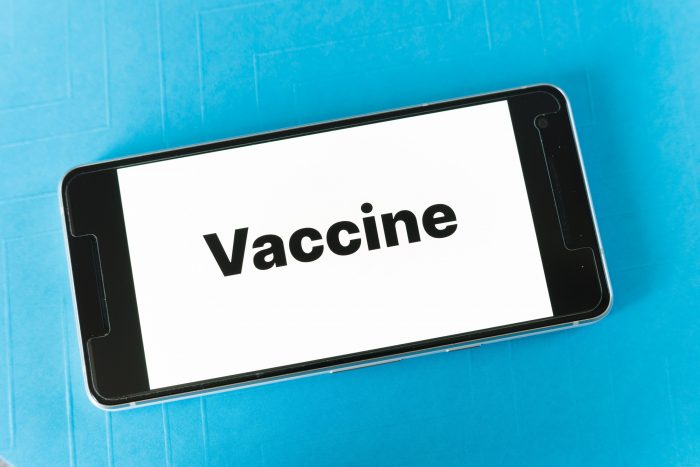The Department of Health and Human Services (HHS) Secretary Xavier Becerra has again issued the renewal of the COVID-19 public health emergency (PHE) due to the continued consequences of the COVID-19 pandemic. The renewal became effective on October 18, 2021 and will extend the PHE into early 2022. This PHE status enables the Centers for Medicare and Medicaid Services (CMS) to keep all applicable waivers in place.
CMS
CMS Will Pay for COVID-19 Booster Shots, Eligible Consumers Can Receive at No Cost
Message from Centers for Medicare and Medicaid Services (CMS):
Coverage without cost-sharing available for eligible people with Medicare, Medicaid, CHIP, and Most Commercial Health Insurance Coverage.
Following the FDA’s recent action that authorized a booster dose of the Pfizer COVID-19 vaccine for certain high-risk populations and a recommendation from the CDC, CMS will continue to provide coverage for this critical protection from the virus, including booster doses, without cost sharing.
Beneficiaries with Medicare pay nothing for COVID-19 vaccines or their administration, and there is no applicable copayment, coinsurance, or deductible. In addition, thanks to the American Rescue Plan Act of 2021, nearly all Medicaid and CHIP beneficiaries must receive coverage of COVID-19 vaccines and their administration, without cost-sharing. COVID-19 vaccines and their administration, including boosters, will also be covered without cost-sharing for eligible consumers of most issuers of health insurance in the commercial market. People can visit vaccines.gov (English) or vacunas.gov (Spanish) to search for vaccines nearby.
“The Biden-Harris Administration has made the safe and effective COVID-19 vaccines accessible and free to people across the country. CMS is ensuring that cost is not a barrier to access, including for boosters,” said CMS Administrator Chiquita Brooks-LaSure. “CMS will pay Medicare vaccine providers who administer approved COVID-19 boosters, enabling people to access these vaccines at no cost.”
CMS continues to explore ways to ensure maximum access to COVID-19 vaccinations. More information regarding the CDC COVID-19 Vaccination Program Provider Requirements and how the COVID-19 vaccine is provided through that program at no cost to recipients is available on the CDC COVID-19 Vaccination Program Provider Requirements and Support webpage and through the CMS COVID-19 Provider Toolkit.
CMS Announces Open Nominations for Technical Expert Panel on PAC Vaccination Measures
The Centers for Medicare and Medicaid Services (CMS) recently announced the creation of a new Technical Expert Panel (TEP) consisting of 8-15 individuals that will focus on the maintenance and development of vaccination-related items and measures within each post-acute care (PAC) setting (inpatient rehabilitation facilities, home health agencies, skilled nursing facilities, and long-term care hospitals). The TEP will focus on reviewing and identifying potential improvements to existing vaccination measures and the development of a COVID resident/patient-level measure for each PAC setting.
Individuals selected to be a part of the TEP will meet through webinar twice in November. The nomination form is located on the announcement page and should be sent via email by October 11, 2021.
CMS to Conduct National Stakeholder Call Tomorrow
The Centers for Medicare and Medicaid Services (CMS) will conduct a national stakeholder call tomorrow, September 17, 2021 at 12:30 pm. The call will be led by new Administrator, Chiquita Brooks-LaSure, and her leadership team, and will focus on key updates from her first 100 days in office. The Administrator’s vision is for CMS to serve the public as a trusted partner and steward, dedicated to advancing health equity, expanding coverage, and improving health outcomes. Members are encouraged to join this first national stakeholder call to learn more about how you can partner with CMS as they implement their vision.
Join the Call here:
OR
Call: 833-568-8864 (Toll Free)
Webinar ID: 161 910 6718
Passcode: 891135
CMS Issues Second IRF Review Choice Demo Notice
The Centers for Medicare and Medicaid Services (CMS) published a second Information Collection Request (ICR) notice in the September 8, 2021 Federal Register related to the proposed inpatient rehabilitation facility (IRF) Review Choice Demonstration. Similar to the original notice, CMS proposes that IRFs in certain states would be subjected to 100 percent pre- or post-claim review for Medicare Part A fee-for-service payments until the IRF meets the target affirmation or claim approval rate. The demonstration is set to begin in Alabama, followed by California, Texas and Pennsylvania. In conjunction with this notice, there is additional information that includes limited revisions from the initial December 2020 proposal, including expanding the language from “trained nurse reviewers” to instead include registered nurses, therapists, or physician reviewers and the elimination of some documentation requirements that were listed in the initial proposal.
Individuals are invited to submit comments regarding the burden estimate or any other aspect of this collection of information, including the necessity and utility of the proposed information collection for the proper performance of the agency’s functions, the accuracy of the estimated burden, ways to enhance the quality, utility, and clarity of the information to be collected, and the use of automated collection techniques or other forms of information technology to minimize the information collection burden. Comments must be submitted by October 8, 2021.
Biden-Harris Administration to Expand Vaccination Requirements for Health Care Settings
Message from Centers for Medicare and Medicaid Services (CMS):
New action will protect patients of the 50,000 providers and over 17 million health care workers in Medicare and Medicaid certified facilities
The Biden-Harris Administration will require COVID-19 vaccination of staff within all Medicare and Medicaid-certified facilities to protect both them and patients from the virus and its more contagious Delta variant. Facilities across the country should make efforts now to get health care staff vaccinated to make sure they are in compliance when the rule takes effect.
The Centers for Medicare & Medicaid Services (CMS), in collaboration with the Centers for Disease Control and Prevention (CDC), announced that emergency regulations requiring vaccinations for nursing home workers will be expanded to include hospitals, dialysis facilities, ambulatory surgical settings, and home health agencies, among others, as a condition for participating in the Medicare and Medicaid programs. The decision was based on the continued and growing spread of the virus in health care settings, especially in parts of the U.S. with higher incidence of COVID-19.
“There is no higher priority for us than patient health and safety. As the Delta variant strengthens, the Biden-Harris Administration is committed to doing everything we can to keep patients, and those who care for them, safe,” said U.S. Department of Health and Human Services (HHS) Secretary Xavier Becerra. “There is no question that staff, across any health care setting, who remain unvaccinated pose both direct and indirect threats to patient safety and population health. Ensuring safety and access to all patients, regardless of their entry point into the health care system, is essential.”
Nursing homes with an overall staff vaccination rate of 75% or lower experience higher rates of preventable COVID infection. In CMS’s review of available data, the agency is seeing lower staff vaccination rates among hospital and End Stage Renal Disease (ESRD) facilities. To combat this issue, CMS is using its authority to establish vaccine requirements for all providers and suppliers that participate in the Medicare and Medicaid programs. Vaccinations have proven to reduce the risk of severe illness and death from COVID-19 and are effective against the Delta variant. CMS will continue to work closely with all Medicare and Medicaid certified facilities to ensure these new requirements are met.
“We know that those working in health care want to do what is best for their patients in order to keep them safe,” said CMS Administrator Chiquita Brooks-LaSure. “As the Delta variant continues to spread, we know the best defense against it lies with the COVID-19 vaccine. Data show that the higher the level of vaccination rates among providers and staff, the lower the infection rate is among patients who are dependent upon them for care. Now is the time to act. I’m urging everyone, but especially those fighting this virus on the front lines, to get vaccinated and protect themselves, their families, and their patients from COVID-19.”
CMS is developing an Interim Final Rule with Comment Period that will be issued in October. CMS expects certified Medicare and Medicaid facilities to act in the best interest of patients and staff by complying with new COVID-19 vaccination requirements. Health care workers employed in these facilities who are not currently vaccinated are urged to begin the process immediately. Facilities are urged to use all available resources to support employee vaccinations, including employee education and clinics, as they work to meet new federal requirements.
Please note that RCPA is working diligently with the Department of Health, Department of Human Services, and the Governor’s Office in order to obtain clarification of the above information. In this way, we will be able to fully understand the impact of this expansion. If you have any questions, please contact your RCPA Policy Director.
New CMS Vaccination Guidance for ICFs/IDD

From Advancing States newsletter:
In May 2021, CMS released a final rule regarding vaccination education, access, and reporting for residents and staff of nursing and care facilities for individuals with intellectual and developmental disabilities. Recently, CMS sent detailed implementation guidelines to the state agencies responsible for overseeing ICFs/IID. This memo details the responsibilities of ICFs/IID within the new guidelines.
Click here to learn more.
CMS Releases FY 2022 IRF PPS Final Rule
On July 20, 2021, the Centers for Medicare and Medicaid Services (CMS) issued the fiscal year (FY) 2022 inpatient rehabilitation facility prospective payment system (IRF PPS) final rule. This final rule updates the Medicare payment policies and rates for IRFs, as well as the policies under the IRF Quality Reporting Program (QRP). CMS also finalizes a Medicare Durable Medical Equipment Prosthetics, Orthotics, and Supplies (DMEPOS) payment provision adopted in an interim final rule with comment period (IFC) issued on May 11, 2018, as well as a provision that was included in a DMEPOS proposed rule published in the Federal Register on November 4, 2020. Other key provisions included in this final rule include:
Updates to IRF Payment Rates:
CMS updates the IRF PPS payment rates by 1.9 percent based on the IRF specific market basket estimate of 2.6 percent, less a 0.7 percentage point productivity adjustment. In addition, the final rule contains an adjustment to the outlier threshold to maintain outlier payments at 3 percent of total payments. This adjustment will result in a 0.4 percentage point decrease in outlier payments.
IRF QRP Final Rule Updates:
The IRF QRP is a pay-for-reporting program. IRFs that do not meet reporting requirements are subject to a two-percentage point reduction in their annual increase factor. CMS is adopting one measure and finalizing its proposal to update the specifications for another measure. In addition, CMS is finalizing its proposal to modify the number of quarters used for public reporting of IRF quality measures due to the public health emergency and sought comments for two Requests for Information (RFI).
Closing the Health Equity Gap – RFI:
CMS is working to make health care quality more transparent to consumers and providers, enabling them to make better choices as well as promoting provider accountability around health equity. CMS’s ongoing commitment to closing the health equity gap in IRFs has been demonstrated by the adoption of standardized patient assessment data elements, which include several social determinants of health (SDOH) that were finalized in the FY 2020 IRF PPS final rule for the IRF QRP (84 FR 39149 through 39161).
CMS sought feedback in this RFI on ways to attain health equity for all patients through policy solutions and has indicated that they would take all comments received into consideration as they continue to address and develop policies on this topic. The provision of stratified measure results will allow IRFs to understand how they are performing with respect to certain patient risk groups and to support these providers in their efforts to ensure equity.
COVID-19 Vaccination Coverage Among Healthcare Personnel (HCP) Measure:
In the ongoing efforts to address the COVID-19 public health emergency (PHE), CMS is finalizing the adoption of the COVID-19 Vaccination Coverage among HCP Measure. This measure is designed to help assess whether IRFs are taking steps to limit the spread of COVID-19 among their HCP, reduce the risk of transmission within their facilities, and help sustain the ability of IRFs to continue serving their communities through the PHE and beyond. Public reporting of the COVID-19 Vaccination Coverage among HCP measure will begin with the September 2022 Care Compare refresh or as soon as technically feasible based on data collected for Q4 2021 (October 1, 2021 through December 31, 2021).
Transfer of Health (TOH) Information to the Patient-Post Acute Care (PAC) Quality Measure:
CMS is finalizing updates to the denominator for the TOH Information to the PAC quality measure. Currently, the measure denominators for both the TOH Information to the Patient-PAC and to the Provider-PAC quality measures include patients discharged home under the care of an organized home health service organization or hospice. In order to avoid counting these patients in both TOH measures, CMS is removing this location from the definition of the denominator for the TOH Information to the Patient-PAC measure.
Public Reporting of Quality Measures with Fewer than Standard Numbers of Quarters Due to COVID-19 PHE Exemptions:
In March 2020, and in response to the COVID-19 PHE, CMS granted an exception to the IRF QRP requirements for calendar year Q1 2020 (January 1, 2020–March 31, 2020) and Q2 2020 (April 1, 2020–June 30, 2020). CMS also stated that any IRF QRP data that might be significantly impacted in terms of measure reportability and reliability by these exceptions would not be publicly reported for Q1 and Q2 of 2020 due to the absence of useable data these exceptions created. CMS is finalizing its proposal to update the number of quarters used for public reporting to account for this exception.
Durable Medical Equipment, Prosthetics, Orthotics, and Supplies (DMEPOS) Policy Issues:
Exclusion from Fee Schedule Adjustments for Accessories (Including Seating Systems) and Seat and Back Cushions Furnished in Connection with Group 3 or Higher Complex Rehabilitative Power Wheelchairs and Complex Rehabilitative Manual Wheelchairs
CMS is finalizing an exclusion from fee schedule adjustments based on information from the DMEPOS Competitive Bidding Program (CBP) for wheelchair accessories (including seating systems) and seat and back cushions furnished in connection with group 3 or higher complex rehabilitative power wheelchairs. CMS is also extending this fee schedule adjustment exclusion to wheelchair accessories (including seating systems) and seat and back cushions furnished in connection with complex rehabilitative manual wheelchairs. Additionally, CMS is modifying the regulatory definition of “item” under the DMEPOS CBP at 42 CFR 414.402 to exclude complex rehabilitative manual wheelchairs and certain other manual wheelchairs and related accessories when furnished in connection with these wheelchairs from the DMEPOS CBP, as required by section 106(a) of the 2020 Further Consolidated Appropriations Act.
All of the provisions contained in this final rule will be reviewed and discussed in greater detail at the upcoming RCPA Outpatient Rehabilitation Committee and Medical Rehabilitation Committee meetings.
CMS to Host Webinar on Price Transparency
On August 11, 2021, from 2:00 pm–3:30 pm, the Centers for Medicare and Medicaid Services (CMS) will host a webinar on Price Transparency focusing on how hospitals can meet the requirements that were included in the Hospital Price Transparency final rule for posting standard charge information in the comprehensive machine-readable file.
Effective January 1, 2021, each hospital operating in the United States is now required to provide publicly accessible standard charge information online about the items and services they provide in two ways:
- Comprehensive machine-readable file with all items and services
- Display of 300 shoppable services in a consumer-friendly format
CMS will also review the document, “8 Steps to a Machine-Readable File of All Items & Services,” and highlight specific good and bad examples of hospital compliance.
Registrants should use this link to register in advance of this webinar:
Meeting ID: 160 926 0288
Passcode: 971693
After registering, you will receive a confirmation email containing information about joining the webinar.
US: +1 669 254 5252 or +1 646 828 7666 or 833 568 8864 (Toll Free)
Webinar ID: 160 926 0288
Passcode: 971693
The accompanying presentation will be available here approximately one week prior to the webinar. For additional information regarding hospital price transparency, please review the information on our website including the following resources.
Feedback and questions regarding the Hospital Price Transparency Final Rule can be sent here.
CMS Issues Revised Nursing Home Visitation Guidance/DHS Updates PA Guidance
The Centers for Medicare and Medicaid Services has issued a revised nursing home guidance that provides updated guidance for visitation in nursing homes during the COVID-19 public health emergency, including the impact of the COVID-19 vaccination. As a result of this guidance, the Department of Human Service issued a notification to long-term care facilities, personal care homes, and assisted living residences in Pennsylvania to implement this guidance immediately.











